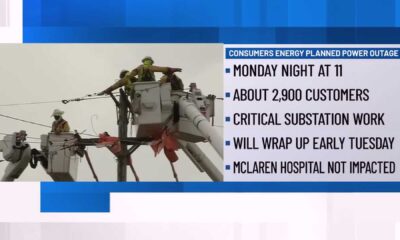News
Israel Launches Major Strike on Iran, Escalating Tensions in the Region

JERUSALEM, Israel — On Friday, Israel conducted a significant military operation against Iranian nuclear sites and military officials, igniting a rapid rise in regional tensions. The attacks, which began early in the day, were characterized by Prime Minister Benjamin Netanyahu as necessary to eliminate what he termed an ongoing threat from Iran.
In retaliation, Iranian forces fired dozens of ballistic missiles at major Israeli cities, including Tel Aviv and Jerusalem, late Friday night. Netanyahu vowed that the Israeli operations would continue “for as many days as it takes” to remove the threat from Iran.
U.S. President Donald Trump expressed strong support for the Israeli offensive, emphasizing that Iran had ignored diplomatic overtures. Trump previously sought to renegotiate the nuclear agreement with Iran, which he withdrew from during his first term. “They got hit hard, very hard… And there’s more to come,” he stated.
Aluf Benn, editor-in-chief of Haaretz, spoke about Netanyahu’s motivations and the timing of the attacks. He noted that Israel has been engaged in conflict with Iran’s “axis of resistance” for nearly two years, with military planning that spans over twenty years. Previous strikes on Iranian nuclear facilities in Iraq and Syria, in 1981 and 2007, respectively, mirror this current action, aimed at preempting perceived existential threats.
The Israeli military’s extensive preparations have culminated following successful operations against Iranian air defenses and Iranian support systems in recent months, which helped create a more favorable military environment.
Benn highlighted the significance of Trump’s support for Israel’s actions among fears that his willingness to engage Iran diplomatically could hinder Israeli military initiatives. However, Trump’s decision to include Israel in the U.S. Central Command has facilitated military coordination between the two nations.
Public sentiment in Israel largely backs the attack, with Netanyahu’s government capitalizing on a united front against Iran. Even amid criticisms of his leadership, policies targeting Hamas and Iranian nuclear ambitions remain popular, helping consolidate his coalition despite internal pressures from ultra-Orthodox parties.
Analysts emphasize that the recent escalation is rooted not only in military strategy but also in Iran’s nuclear advancements, with reports indicating that Iran has been intensifying its uranium enrichment efforts. This timeline coincides with previous U.S. administrations’ negotiations, further complicating the geopolitical landscape.
As the situation evolves, the implications of these attacks for both Israeli and Iranian interests remain unclear, prompting speculation about future military and diplomatic developments in the region.












